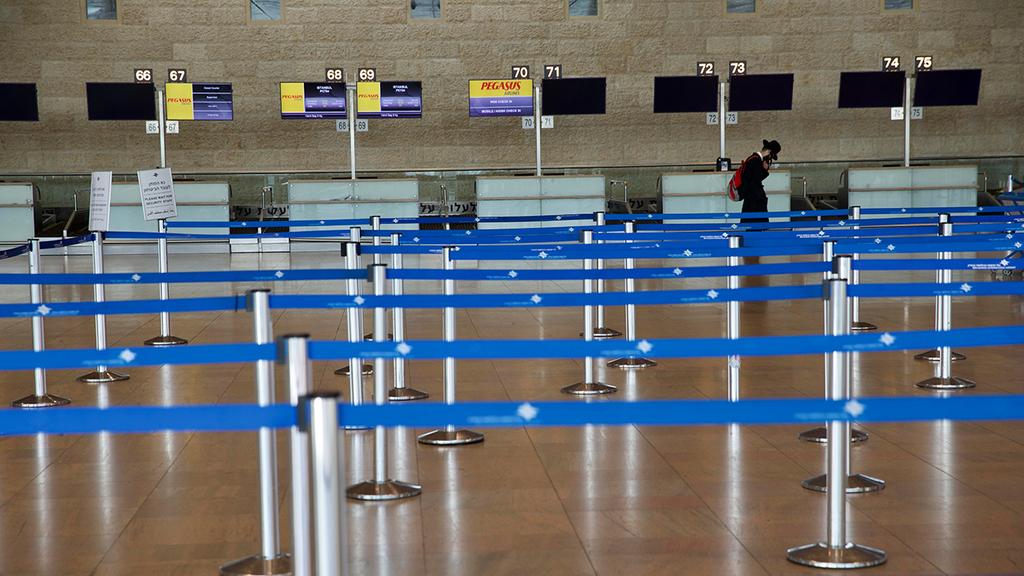Israel is among countries taking extreme measures in response to the spread of COVID-19, aka coronavirus.
But despite those measures, the virus is more prevalent in Israel than in many other countries.
As of Sunday evening, 39 cases of coronavirus had been confirmed placing the country in 33rd place out of 195 in terms of infected per capita, suggesting travel anywhere outside the country is a safer choice than staying put.
Of course, places like China's Hubei province or Italy should be avoided.
Thailand, a country of 70 million people, with 48 reported cases of infection, is threes time as safe as Israel, but passengers returning from there are required to enter a two-week period of quarantine.
In an effort to calm the public's panic, which is causing immeasurable damage to Israel's economic and national stability as well as harming its foreign relations, I am calling for some of the steps declared by the government to be rescinded since their efficiency is questionable.
As Prof. Ran Balicer, a member of the Ministry of Health's task force on epidemics, has already noted, South Korea - which has thus far conducted the most widespread and reliable testing for the new virus - has a 0.5% death rate.
This is seven times lower than the terrifying and most likely erroneous numbers put out by the World Health Organization.
An examination of the spread of the virus clearly indicates it thrives in the northern hemisphere now experiencing cold weather.
Australia reported its first case on February 4 and has only 65 confirmed cases of coronavirus. Italy on the other hand saw its first case on February 5 and has reported 4,600 cases thus far.
The virus multiplies after infection and migrates to the next person. If one carrier of the virus infects on average one other person, the virus could spread exponentially. If the virus infects less than one person on average it will reduce exponentially.
Cold temperature in the northern hemisphere enables exponential growth in cases while the southern hemisphere sees a matching drop in cases. This does not mean there are no cases of infection in Brazil or Australia, but they are much less prevalent.
A careful estimation of Israel's relatively low infection rate could be attributed to the mild weather. Most Israelis were not infected locally by the coronavirus. They arrived from areas where the rate of infection was substantial and weather conditions optimal for the virus to thrive.
The fact that a group of South Koreans traveled around the country for two weeks but infected very few Israelis could be seen as corroboration.
Even the shop owner who returned from Italy having been exposed to the virus only infected his wife and a number of other people, far fewer than could have been infected had the weather conditions been different. In order to cause illness, the virus must be present in high numbers, reach specific tissue, overcome a healthy immune system and multiply in his host's body. In many of the cases, these conditions would not be met and no infection could take place.
There is a consistent reduction in the number of new cases of the coronavirus in China and more people who were infected are making a full recovery. Contrary to media reports claiming 100,000 people have been infected by the virus worldwide, there are only 40,000 such cases.
Of that number, 57,000 people have made full recoveries and 3,500 have died. These statistics should be encouraging.
Measures taken by the Israeli government are excessive in my view, as is the worldwide panic that is supported by hurried decision making processes that are causing undoubtable economic harm.
3 View gallery


Prime Minister Benjamin Netanyahu, Health Minister Yaakov Litzman and high-profile officials from the Health Ministry
(Photo: Amit Shaabi)
These government measures would have been supported had there been less doubt as to their effectiveness in saving lives, but with the knowledge available it would be best to revaluate some of the decisions being made.
A leader who can take responsibility is needed. One who can say that there is no cause for panic. I hope such a person can be found and that he or she could be an example to other world leaders.
Most of the Health Ministry's guidelines should be scrapped and only those that do not cause damage to the economy or to foreign relations should be maintained: people should refrain from needless physical contact and the more susceptible to disease and the elderly should distance themselves from anyone ill.
But the public should be encouraged to continue traveling, maintain their routine and allow the virus to disappear most probably with the summer. It is less deadly than its predecessors, (the SARS and MERS viruses) and after so many reported cases there is no shortage of relevant information available to health authorities.
Ehud Qimron is a professor of clinical microbiology at the Tel Aviv University School of Medicine



